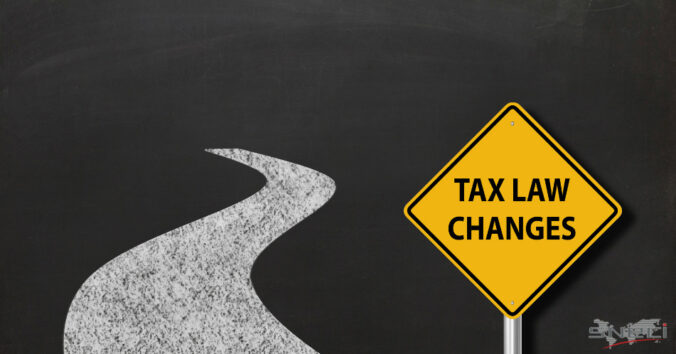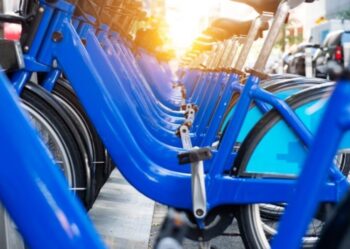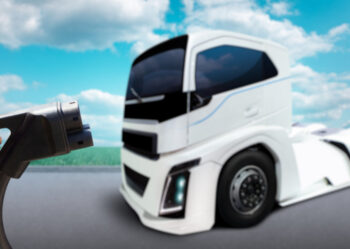Bonus, malus, taxation, … everything that has changed since January 1, 2022.

Every new year brings its share of changes, regulations, subsidies, tariffs… and 2022 was no exception!
Malus, radars, parking, taxation, everything has been changed or almost…back to what has changed since January 1st 2022.
Back on all the changes for the automotive sector:
- Hardening of the ecological malus: since January 1, 2022, the scale of environmental fines has been further strengthened passing the trigger threshold to128 g / km of CO2 against 133 g / km in 2021. The maximum amount of the tax, peaking at €30,000 in 2021, has been increased to €40,000 in 2022 for the most polluting vehicles (>223 g/km CO2). Note that the total cost is now capped at 50% of the price including tax of the vehicle concerned for all brackets.
- The weight-based malus: this change, which has been requested for years, has just come into force. This tax, which applies to vehicles weighing more than 1,800 kg, takes into consideration only the “mass in running order” including a 75 kg driver, in accordance with European regulations. Then a unit rate of 10 euros per excess kilo will be applied.
Of course, some vehicles are spared the weight-based malus, such as electric or hydrogen-powered cars, rechargeable hybrids with at least 50 kilometers of electric range in the city, vehicles accessible to people with reduced mobility, and light commercial vehicles (LCVs) weighing less than 3.5 tons and used to transport goods.
Note that an allowance is also provided for large families, and another for companies and legal entities wishing to acquire a vehicle with at least eight seats.
- Ecological bonus: once again in the spotlight in 2022, providing financial support to eco-mobilists, up to €3,000 for the purchase of a thermal vehicle and up to €6,000 for the purchase of a hybrid or electric vehicle using less than 20 g of CO2/km. On July 1, the amount of the subsidies will be reduced by €1,000. At the same time, the car bonus will be reduced or even abolished.
- Conversion bonus: since January 1, 2022, only thermal vehicles emitting less than 127 g/km of CO2 (instead of 132 g/km in 2021) will be eligible. The aid can rise to 5,000 euros for the purchase of an electric or plug-in hybrid car, depending on the tax income per unit. With oil prices soaring, this bonus could be a good way to switch to electric or hybrid cars.
- Videoverbalisation: good news for videoverbalisation which was supposed to come into force at the end of 2021 but which will finally be postponed to 2023.
- Modernization and renewal of radars: No more radars in 2022, but a renewed and modernized fleet. The State plans to have 4,500 active devices on the territory with a replacement of the current radars by new urban radars. The number of autonomous radars will be 400 devices.
The number of speed cameras entrusted to private companies will increase: 400 will soon be on the roads, generating 714 million euros in revenue. A slightly better score than in 2021.
- Chains and winter tires: with the Mountain Law, motorists must be equipped during the winter period, which runs from November 1 to March 31, with chains, socks and winter or four-season tires for their vehicles.
34 of the 48 French departments with mountainous areas are concerned.
- Tolls are also concerned because, as every year, toll rates will increase on February 1st. The average increase should be 2%.
- Cruise control: in order to prevent accidents due to speeding, road safety has adopted a new regulation in November 2021 to impose the compulsory equipment of a “Intelligent Speed Adaptation” device on all new European vehicles from July 1st 2022.
As speed limit signs are rarely respected, the European Union foresees that ISA technology will limit the number of speeding violations by identifying, through a camera located at the front of the vehicle, the speed limit on a road and by acting through an audible or visual signal if it is exceeded according to the regulation. In case the speed would have exceeded the authorized speed, the AIV device would take the initiative to reduce the acceleration by itself.
- Autonomous vehicle: makes its appearance for the first time in France. And yes, in 2022, the autonomous vehicle which was until now confined to specific areas such as the defense …, will be able to circulate on the roads of France. The highway code will have to adapt to this new usage.
- The mobility voucher: we mentioned it in a previous article, but since January 2022 the mobility voucher, a bit like a meal ticket, allows companies to finance expenses related to employees’ professional travel.
- ZFE: After Grenoble, Nantes, Lille and Montpellier, the city center of Bordeaux is going to 30 km/h, and will be followed by Lyon in March 2022. Toulouse will also rapidly deploy this limit, which is already in force in certain zones.
- Car advertising: new rules from March 1, 2022, as car advertisements will have to mention the CO2 emission class. In addition, they will have to include new prevention messages that encourage the use of more environmentally friendly means of transportation: cycling, carpooling…
Other changes are being discussed for 2022 such as a scrapping premium for two-wheelers, the establishment of a conversion premium for two-wheelers up to 6,000 € to buy a two-wheeler electric or very low pollution.
The technical control checked by radars: currently, when a motorist is flashed by a radar, his insurance is also checked. If he is not insured, he is fined for this additional reason. This could soon be the case for technical controls as well.
Finally, the technical control should be further strengthened by 2022 with a “super pollution test”, including measurements of five gases, including nitrogen oxides to start.
Not to mention the changes to come in tomorrow’s mobility, with the end of the marketing of combustion engine vehicles by 2035, the deployment of hydrogen…
With 70 years of expertise in the automotive industry, SNECI assists all players in the automotive industry, whether they are manufacturers or suppliers of rank 1, 2, 3… in the improvement of their processes and production as well as in their international development.
If you want Laura to call you back to discuss your needs and our services, do not hesitate to send her an email at laura@sneci.com, she will answer you within 24 hours.






